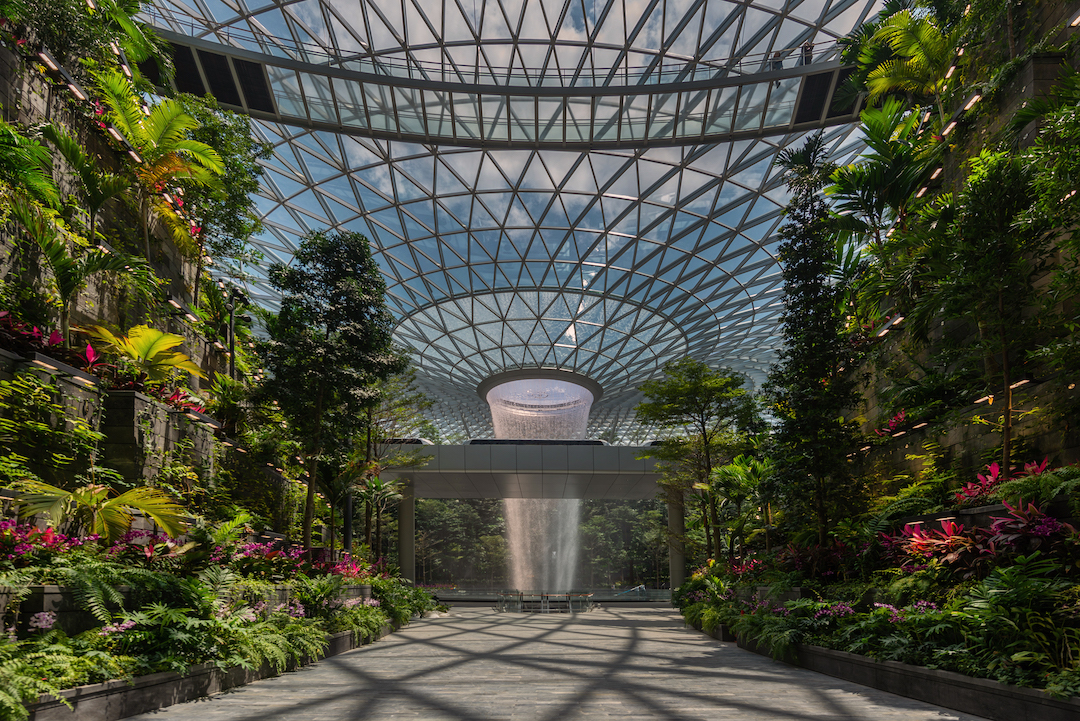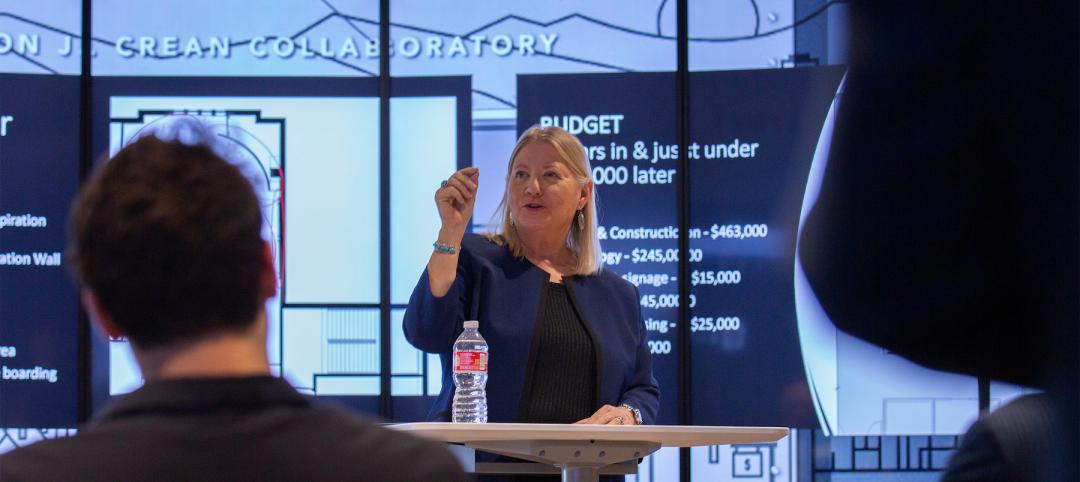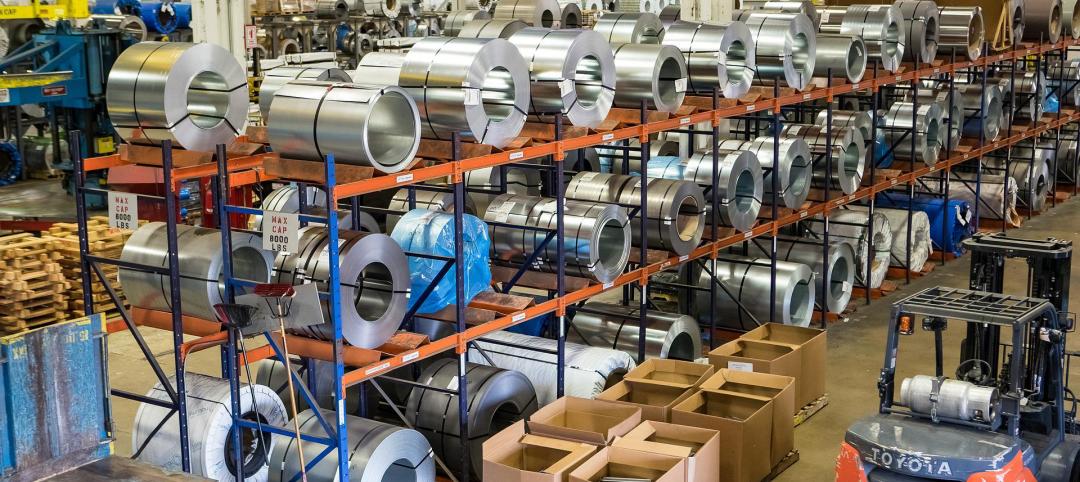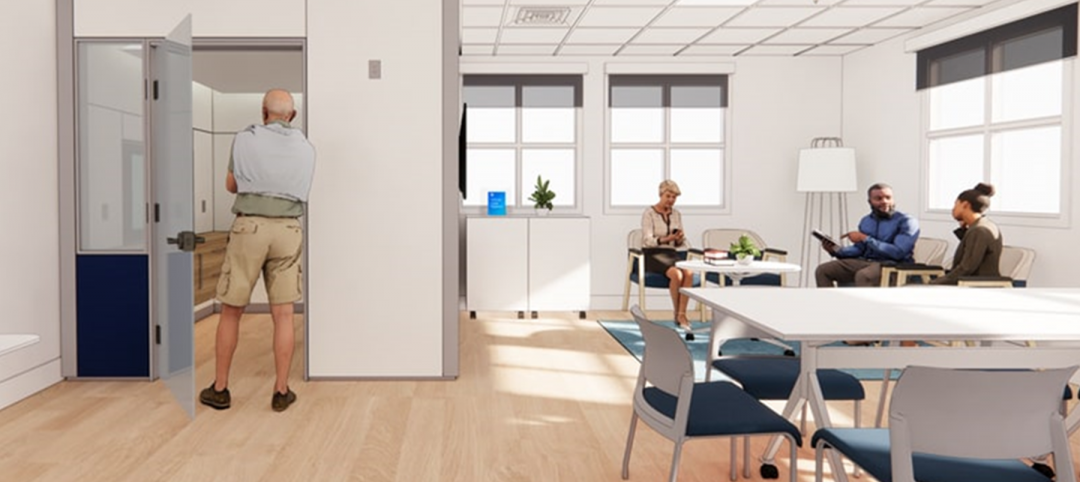Four years ago, at one of its technology gatherings, the engineering firm BuroHappold concluded that “we weren’t connected enough as a company,” recalls Craig Schwitter, PE, a Partner who has been with the firm since 1992 and leads its multidisciplinary projects.
To take advantage of available communications tools, Buro Happold formed its Computational Collective, which Schwitter says presents the firm’s employees with “a different way of thinking and working.”
Buro Happold's feedback loop
The Collective now has 400 members across all of the firm’s practices and offices. “It’s a way of democratizing technology, and all you have to do to be in the Collective is to contribute to it,” says Schwitter.
Where the Collective is about encouraging employees to interact, BuroHappold has also recently established a data exchange framework BHoM (for Buildings & Habitats object Model), which Schwitter says emerged from the Collective and allows for practical interfaces among teams. Last year, the firm unveiled its open-source website, BHoM.xyz.
BuroHappold has been moving in this collaborative direction for a while. One of its recent signature projects—the 1.4 million-sf retail and lifestyle complex at Jewel Changi Airport in Singapore, with its 131-foot-tall indoor rain vortex that pours from an oculus within a glass-domed roof—required the engagement of several of the firm’s offices, including New York, Boston, London, and Hong Kong. Schwitter agrees that this project could be viewed as a precursor to the Collective.
SEE ALSO: Clayco seeks the cutting edge as a competitive advantage
The ultimate goal of these changes, he says, is a process for tracking, measuring, and predicting human behavior for the purpose of designing and engineering better buildings. “How do you measure happiness, wellness? We see a future where we can measure the human experience. That’s like a light bulb going off for an engineer, and it’s a very motivating concept for me. But without data, we wouldn’t be able to even ask these questions.”
Innovations include digital twins for hospitals
Schwitter says BuroHappold is “very close” to being able to create digital twins for hospitals and other building types that incorporate human behavioral data. And one of Schwitter’s colleagues, Wolf Mangelsdorf, a Group Director and Partner with the firm, has formulated a “science of place” design strategy to multifamily housing, in what he calls “Wechselwirkungen.”
The intent is to reconcile design models and “interventions” that stem from community input with occupant and community needs, to create a continuous feedback loop that would define the criteria for deciding which design will works best.
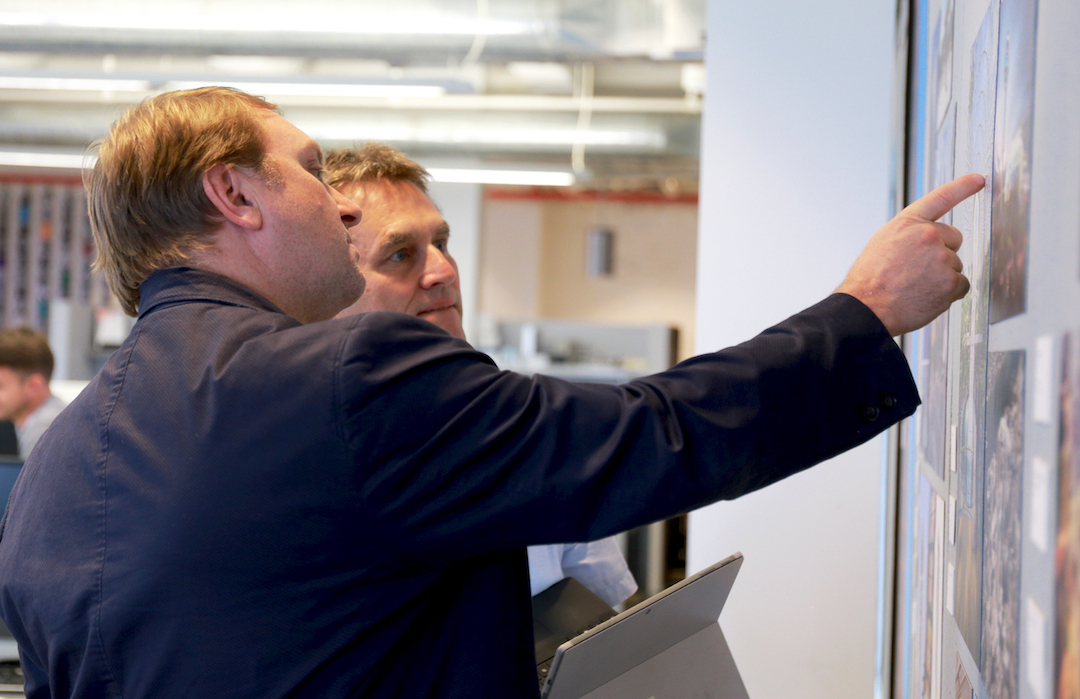 Craig Schwitter, PE (at left), a Partner, says the Computational Collective has changed the way people within the firm communicate and work together. Photo: Buro Happold
Craig Schwitter, PE (at left), a Partner, says the Computational Collective has changed the way people within the firm communicate and work together. Photo: Buro Happold
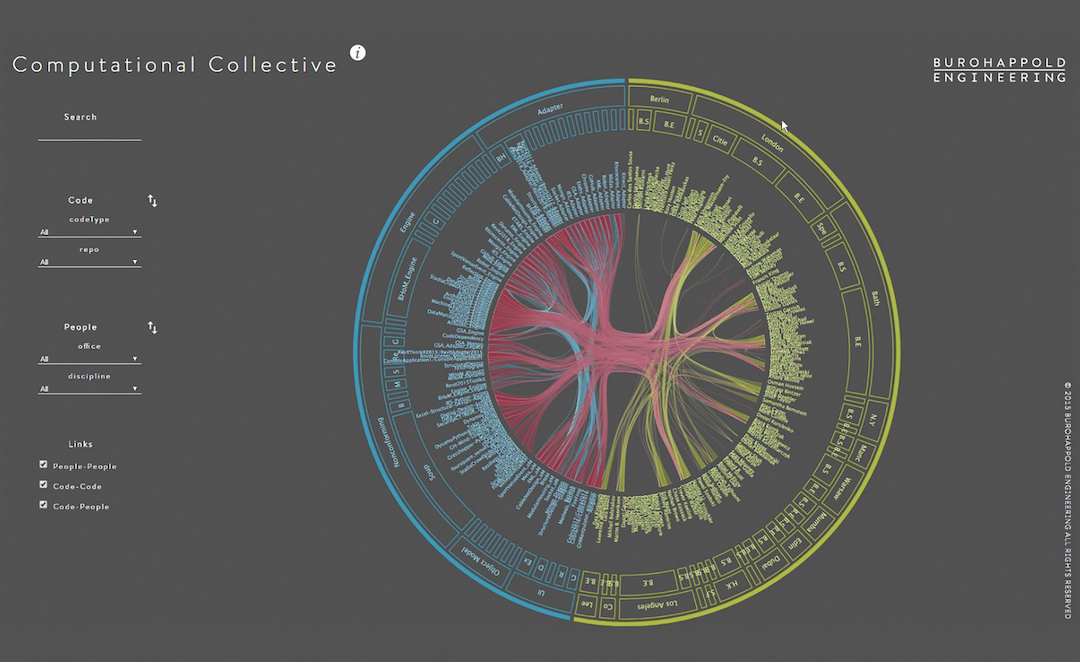
Related Stories
Daylighting | Aug 18, 2022
Lisa Heschong on 'Thermal and Visual Delight in Architecture'
Lisa Heschong, FIES, discusses her books, "Thermal Delight in Architecture" and "Visual Delight in Architecture," with BD+C's Rob Cassidy.
Laboratories | Jun 29, 2022
The "collaboratory" brings digital innovation to the classroom
The Collaboratory—a mix of collaboration and laboratory—is a networking center being designed at the University of Denver’s College of Business.
Building Materials | Jun 20, 2022
Early-stage procurement: The next evolution of the construction supply chain
Austin Commercial’s Jason Earnhardt explains why supply chain issues for the construction industry are not going to go away and how developers and owners can get ahead of project roadblocks.
Healthcare Facilities | Jun 20, 2022
Is telehealth finally mainstream?
After more than a century of development, telehealth has become a standard alternative for many types of care.
AEC Business Innovation | Jun 15, 2022
Cognitive health takes center stage in the AEC industry
Two prominent architecture firms are looking to build on the industry’s knowledge base on design’s impact on building occupant health and performance with new research efforts.
Wood | Apr 13, 2022
Mass timber: Multifamily’s next big building system
Mass timber construction experts offer advice on how to use prefabricated wood systems to help you reach for the heights with your next apartment or condominium project.
AEC Tech | Apr 13, 2022
A robot automates elevator installation
Schindler—which manufactures and installs elevators, escalators, and moving walkways—has created a robot called R.I.S.E. (robotic installation system for elevators) to help install lifts in high-rise buildings.
Hotel Facilities | Apr 12, 2022
A virtual hotel to open in the metaverse
A brand of affordable luxury hotels that launched in 2008, citizenM has announced it will purchase a digital land site in The Sandbox, a virtual game world owned by Animoca Brands.
Modular Building | Mar 31, 2022
Rick Murdock’s dream multifamily housing factory
Modular housing leader Rick Murdock had a vision: Why not use robotic systems to automate the production of affordable modular housing? Now that vision is a reality.
AEC Tech Innovation | Mar 9, 2022
Meet Emerge: WSP USA's new AEC tech incubator
Pooja Jain, WSP’s VP-Strategic Innovation, discusses the pilot programs her firm’s new incubator, Emerge, has initiated with four tech startup companies. Jain speaks with BD+C's John Caulfield about the four AEC tech firms to join Cohort 1 of the firm’s incubator.


